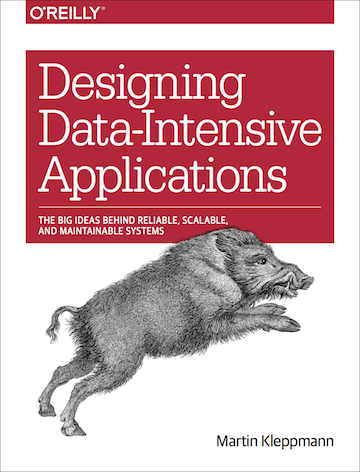Looking back at 2008, Plans for 2009
Published by Martin Kleppmann on 30 Dec 2008.
2008 has been an exciting year.
My company got off the ground, winning and completing a number of
software development contracts for different clients, including
Bid for Wine,
Mydeco, Velocix,
Microsoft Research,
Imense,
Bupa and
Collabora.
It has always been my goal to stay flexible and work with a
wide range of different skills, because I believe that a wide view and interdisciplinary abilities
allow you to find insights and intelligent alternative solutions which other people cannot see. On
the other hand, there is a danger that if you don’t specialise, you end up as the stereotypical
consultant who can talk intelligent-sounding gibberish but can’t actually do the nitty-gritty work
of getting the job done.
And I am glad to say, after the busy time and the exciting journey which
was 2008, that we got the balance right. We have specialised enough that we have deep expertise and
we can explain to others what we do: we are web application developers (not web designers, not
user experience consultants, not desktop app developers, not system administrators, etc). But we are
also generalists enough to understand the big picture and many of its important parts, and to be
confident that we can tackle even very complex web application engineering projects. In the projects
for the aforementioned clients we have worked (in no particular order) in project management, Ruby
on Rails, Python/Django, Java EE, complex client-side Ajax and JavaScript, screen scraping and
parsing, semantic web, RDF and ontologies, search technology, Facebook applications, continuous
integration and automated testing, user interface design, REST API design, web application
scalability, SMS/MMS gateway integration, payment gateway integration, and so on.
Along with all this technical excitement, the business has also been profitable, and has enjoyed
stable cash-flow. I am pleased.
So where do we go from here?
In 2009, I am hoping to focus more on Ept’s own
projects. We will continue work on projects for clients, but will also invest in developing products
which a lot of people will find useful, and which will help to give us a stronger position in
future. Without giving away too much detail ahead of time, these are the two main
areas:
- I have
previously mentioned how we use Selenium
for automated testing of our web applications, and that I would love to use a hosted service which
will run the tests for us if I could find a service which met our needs. The problem: such a service
doesn’t exist. But it will soon – we’re working on it. Our automated testing service will be
for web application developers like ourselves, who need to test their work in real web browsers,
but have better things to do than to spend ages setting up their own grid of machines to run those
tests. Our service will be a massive time-saver for web developers who want to deliver quality
work. So far I’ve had enthusiastic feedback from fellow web developers, and I am really looking
forward to giving you all this useful tool.
- Dealing with invoices and payments is going to be important for you sooner or
later if you want your business to be sustainable (a.k.a. ‘have food to eat’). That’s as true for
web apps as it is in most of the rest of the world. Unfortunately most developers find it an
extremely un-sexy topic, and so while you get dozens of web frameworks which compete to deal with
the details of HTTP session handling and object-relational mapping, I can’t find any decent
framework to provide a flexible but powerful basis for an invoicing and payments system. Over the
next months I will be developing a free and open source framework which anybody can use to
easily create a powerful and flexible invoicing and payment system. It will be both
developer-friendly and accountant-friendly and based on open standards (such as
UBL, which I have explored previously).
Initially it will be designed for Ruby on Rails apps, but hopefully it will get ported to other
languages and frameworks later on.
The common theme: providing tools and building blocks
for the people who make the applications which shape the web. I believe that web applications are
already very important, and have an extremely bright future. I want to do my bit to make the web
even more awesome than it is already: open, interconnected, dependable, secure, useful.
Happy new year!
If you found this post useful, please
support me on Patreon
so that I can write more like it!
To get notified when I write something new,
follow me on Bluesky or
Mastodon,
or enter your email address:
I won't give your address to anyone else, won't send you any spam, and you can unsubscribe at any time.
